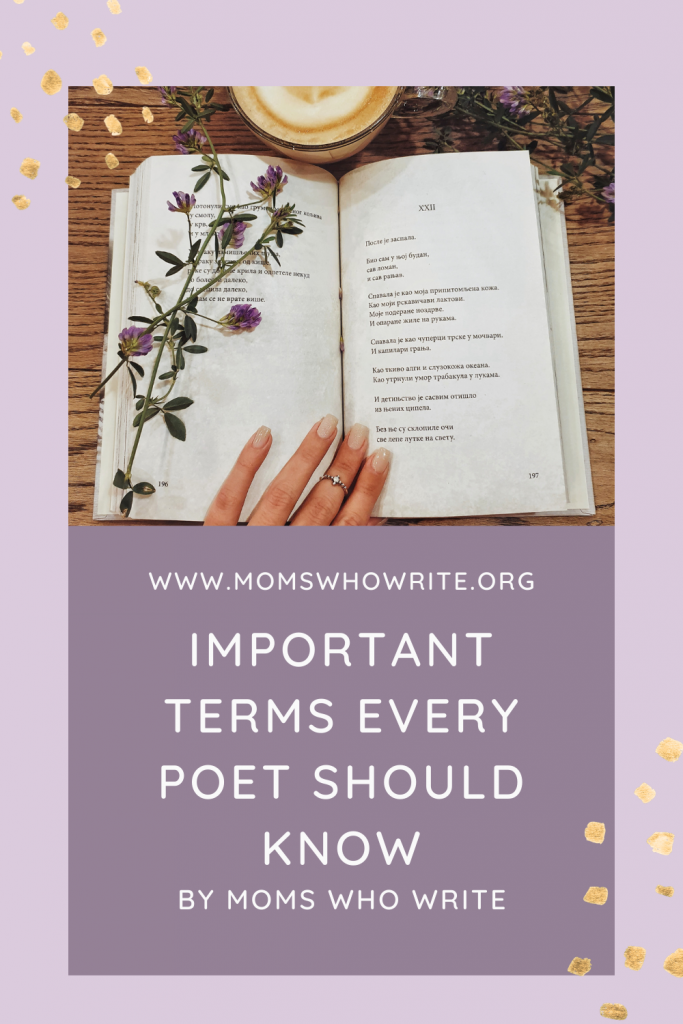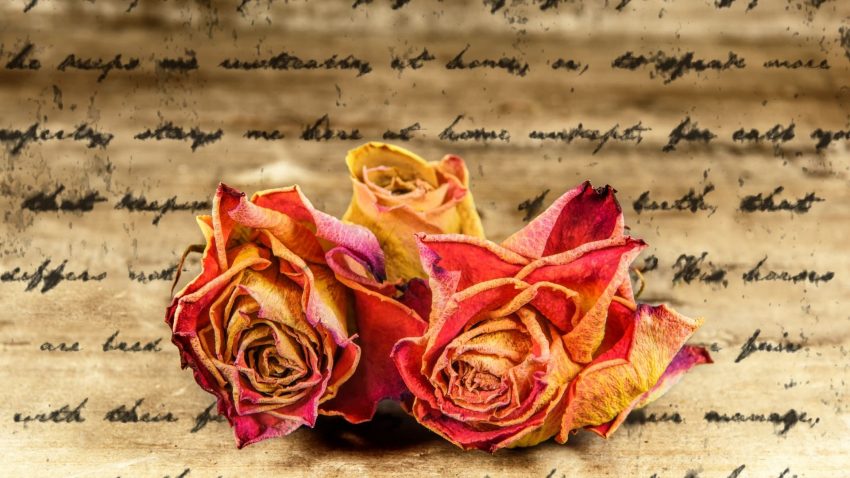Happy National Poetry Month, poets! Here at Moms Who Write, we celebrate you. Whether you’re a veteran poet with years of experience and publishing credits under your belt, or you’re a fledgling poet still testing your wings. Either way, we want to support you and your craft; we’re cheering you on enthusiastically from the sidelines!
Over the month of April, we’ll be posting a lot about poetry here on the blog, including this series on Important Terms Every Poet Should Know. We’re going to start our conversation by defining two of the most important words of the genre: Poetry and Prose.
What the heck are poetry and prose anyway?
This is a super complicated question, not least of all because of the seismic shift in the craft over the last century. That, of course, didn’t stop Merriam-Webster from taking a stab at it:
Poetry: writing that formulates a concentrated imaginative awareness of experience in language chosen and arranged to create a specific emotional response through meaning, sound, and rhythm
Yeah, ok, while technically not wrong, this definition feels completely inadequate to capture the full breadth of what poetry is. At its heart, poetry can’t be defined and defies our attempts to do so. I find that turning to poets themselves gives me much better definitions of what poetry is.
Carl Sandburg said, “Poetry is an echo, asking a shadow to dance.” Robert Frost says poetry is “when an emotion has found its thought and the thought has found words.” My personal favorite is Emily Dickinson’s definition: “If I feel physically as if the top of my head were taken off, I know that is poetry.”
Basically, we know it when we see it but can’t define it perfectly. Maybe the easiest definition of poetry is “writing that isn’t prose.”
Prose: the ordinary language people use in speaking or writing; a literary medium distinguished from poetry, especially by its greater irregularity and variety of rhythm and its closer correspondence to the patterns of everyday speech (Merriam-Webster)
Basically, prose is all writing that isn’t poetry. This blog post is prose. Novels are usually prose. The email you sent to your boss is (almost definitely) prose.
If we can’t adequately define it, how can we talk about it?
I’m so glad you asked! Although defining poetry may be as slippery as your toddler right out of the bathtub, the official dictionary definition above does give us a few clues about how to identify and talk about poetry. All we need are the right terms.
The mechanics of poetry can be stripped down to what I like to call its Three Main Ingredients: Sound, Form, and Meaning. Each of these categories has a long list of terms and definitions that help us understand and talk about the art form, strengthening our ability to understand and create poetry. We’re going to visit each of these Ingredients in April, highlighting some of the most important and helpful terms for each. I can’t wait to dive in.

How do you define poetry?
What about you? Do you agree with the dictionary or the poets above, or do you have a different working definition? I’d love to hear your thoughts! Comment below, or email me at abby@momswhowrite.org.
About The Writer: Abby is a writer of fiction and poetry who joined the Moms Who Write team in November of 2021. She’s a homeschool mom of three who loves to teach writing and literature on the occasions she can be torn away from puttering in her garden and binge-reading whatever strikes her fancy. She lives in a rural town in Central Illinois with her husband, three kids, two cats, a guinea pig, and six chickens. To read more of Abby’s writing and to find her social media links, please visit her website at www.abbyharding.com.

2 thoughts on “Important Terms Every Poet Should Know: Poetry and Prose”